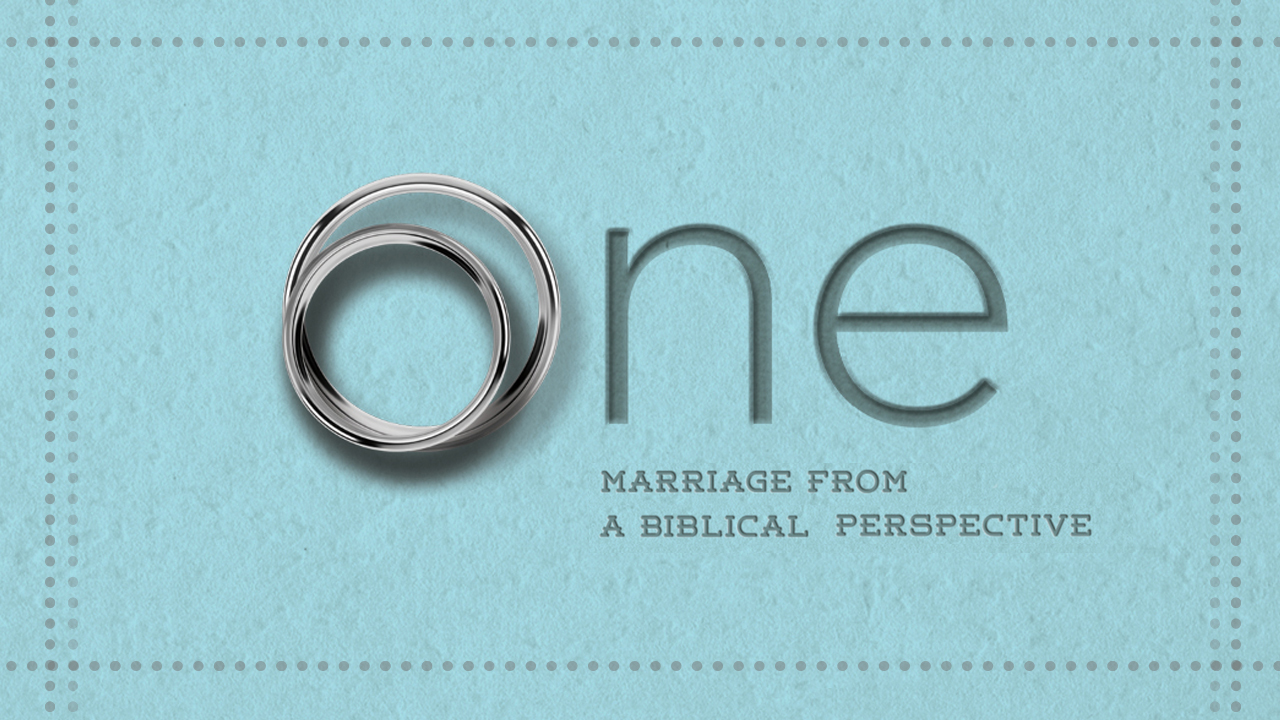
15 Sep Recap | One | Uniqueness
Marriage is the practice of oneness between two people, and that oneness is made even more profound by the uniqueness that sets each gender apart from the other – a controversial subject, but also an important one. In a time when the lines between genders are blurred, how are we to think about uniqueness in a way that is Biblical?
The term may invoke thoughts of individuality – the uniqueness of individual persons as special and distinct from each other. In this way, uniqueness is celebrated by the world around us; people are encouraged to be their authentic selves. However, the distinctiveness of each gender is an idea that is obscured and derided.
It seems undeniable, though, that uniqueness is a reality that sets one spouse apart from the other. Most clearly it is seen at a purely physical level in the differences of male and female bodies. On this same level, we are able to witness God’s design for male and female uniqueness in marriage. When we come together over our mutual uniqueness at this physical level, it is perhaps the most powerful display of oneness to be found anywhere.
In addition, God’s character as Creator is reflected here. In Genesis 1, all three members of the Trinity are present and active in the creation of the first man: “Let us make man in our image.” Each member is unique, but there is absolute unity between them. In the making of a new person in our own image, marital oneness and uniqueness are both absolutely necessary.
Gender Identity
When God made man in His own image, He purposefully created them male and female. Where He could have made one universal gender, He made two distinct ones.
Gender identity, then, is not something that each of us ended up with by chance, that we may do with as we choose. Gender identity is not about self-expression or personal fulfillment. Gender identity is not really about the person at all. Instead, it is about God. Each of us claims a unique gender identity because of His sovereign design, and He means for us to steward our identities with His intentions in mind. In our uniqueness, we are able to reveal different aspects of God’s character to the world around us.
Despite this, it is undeniable that gender identity has been an occasion for oppression in the past. History is full of people who used their God-given gender identities to assert themselves over others. However, without ignoring these evils, we look to Scripture for the truth about gender identity.
In Genesis 2, God reveals His rationale for the creation of man and woman. God created the first man because “there was no man to work the ground,” placing him in a garden so that he might work the earth. The woman was then formed because “it is not good that the man should be alone.” The first woman was created as an essential counterpart or helper – an ezer kenegdo – to the man. Each gender is unique in the need that they correspond to—the man to the need of the earth, the woman to the need of the man.
Although the woman corresponds to the man and was even made from him, her gender identity spells a difference in role from him, not value. The woman’s identity as ezer is in no way denigrating or degrading to her; indeed, God Himself takes on this same identity quite often (the Hebrew word ezer in the Old Testament refers to the first woman twice and 16 times to God as helper of Israel). By being the helper of the man, the woman reveals God to the world.
Marital Role
Uniqueness rises to a new level of consequence in the context of marriage in which marital roles are the way that a husband and wife display the gospel to the world. Within marriage, a man and a woman fulfill their marital roles, and in doing so, may powerfully live out the drama of redemption before the watching world.
In Ephesians 5, Paul gives instruction to husbands and wives concerning these roles. Husbands are to love their wives like “Christ loved the church and gave Himself up for her.” Wives are to submit to the leadership of their husbands, “as to the Lord.” When this happens, a marriage may show the world the loving leadership of Christ for His church, and His church’s trusting submission to Him.
Marital roles are like gender identity, then, in that their importance stems from God’s design for them. His desire for us is to reveal Him to the world around us, and we are responsible for how we carry this mission out.
Application
• We must own our identities as male and female. We are what God made us to be, and living out that identity is a way that we worship.
• We must fulfill our roles. The world needs to see marriages that are full of the uniqueness of both femininity and masculinity and to see the good and right result of such a marriage.
-Brian Barbee
To listen to, view, or download this sermon, visit our website here.
Worship Songs from the Weekend
- Open Up Our Eyes: Psalm 118, Psalm 136, Exodus 14:13-14
- Raised to Life: Romans 6:4-11, Micah 7:19, 2 Corinthians 12:9-10
- God With Us: Joshua 1:9, John 1:14, Psalm 68:19-20
- Man of Sorrows: Isaiah 52, 1 Timothy 2:5-6
- Sovereign Over Us: Genesis 50:20, Jeremiah 29:11, Isaiah 55:8-9, Romans 8:28
- Christ is Enough: 2 Corinthians 12:9, Matthew 16:21-27


